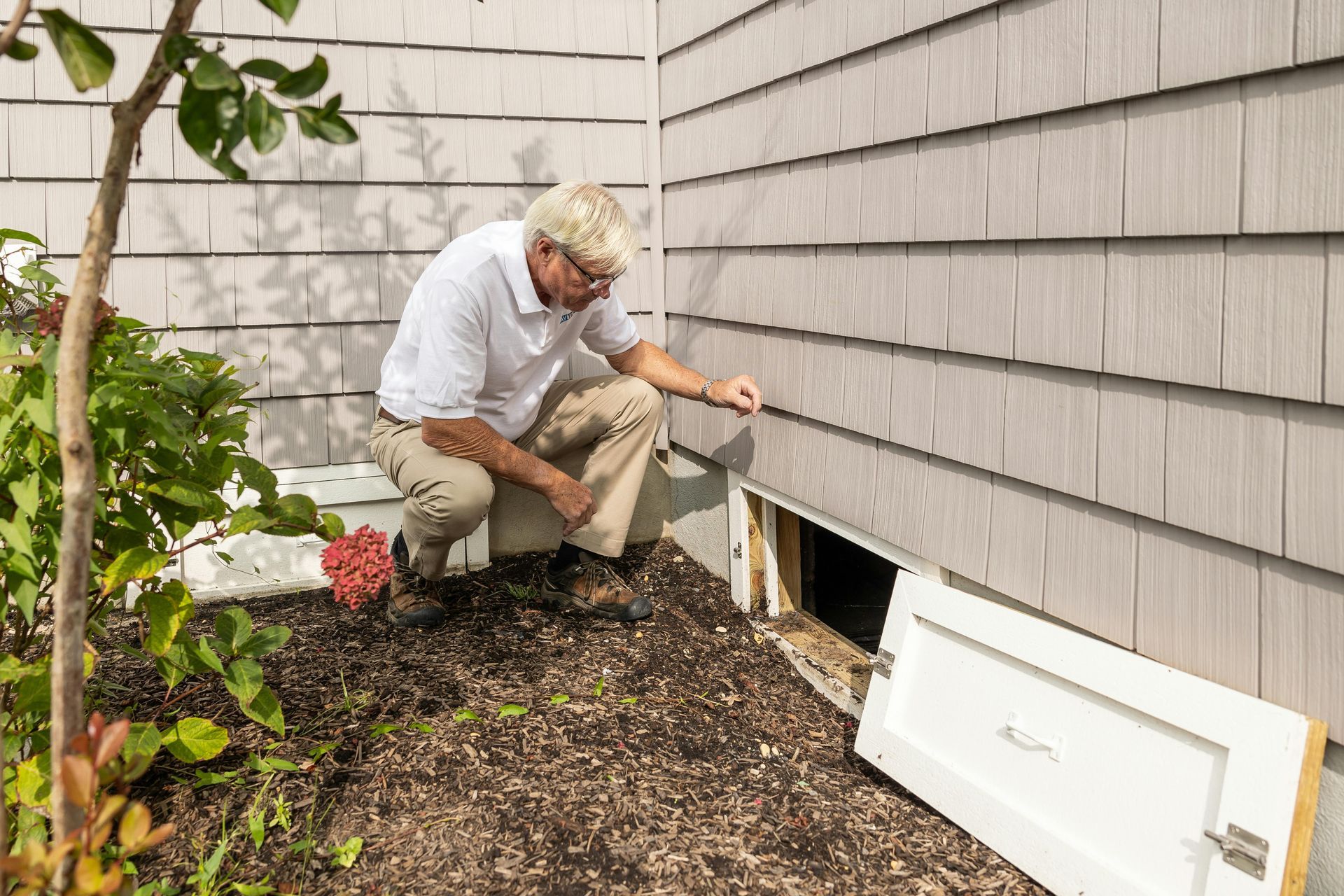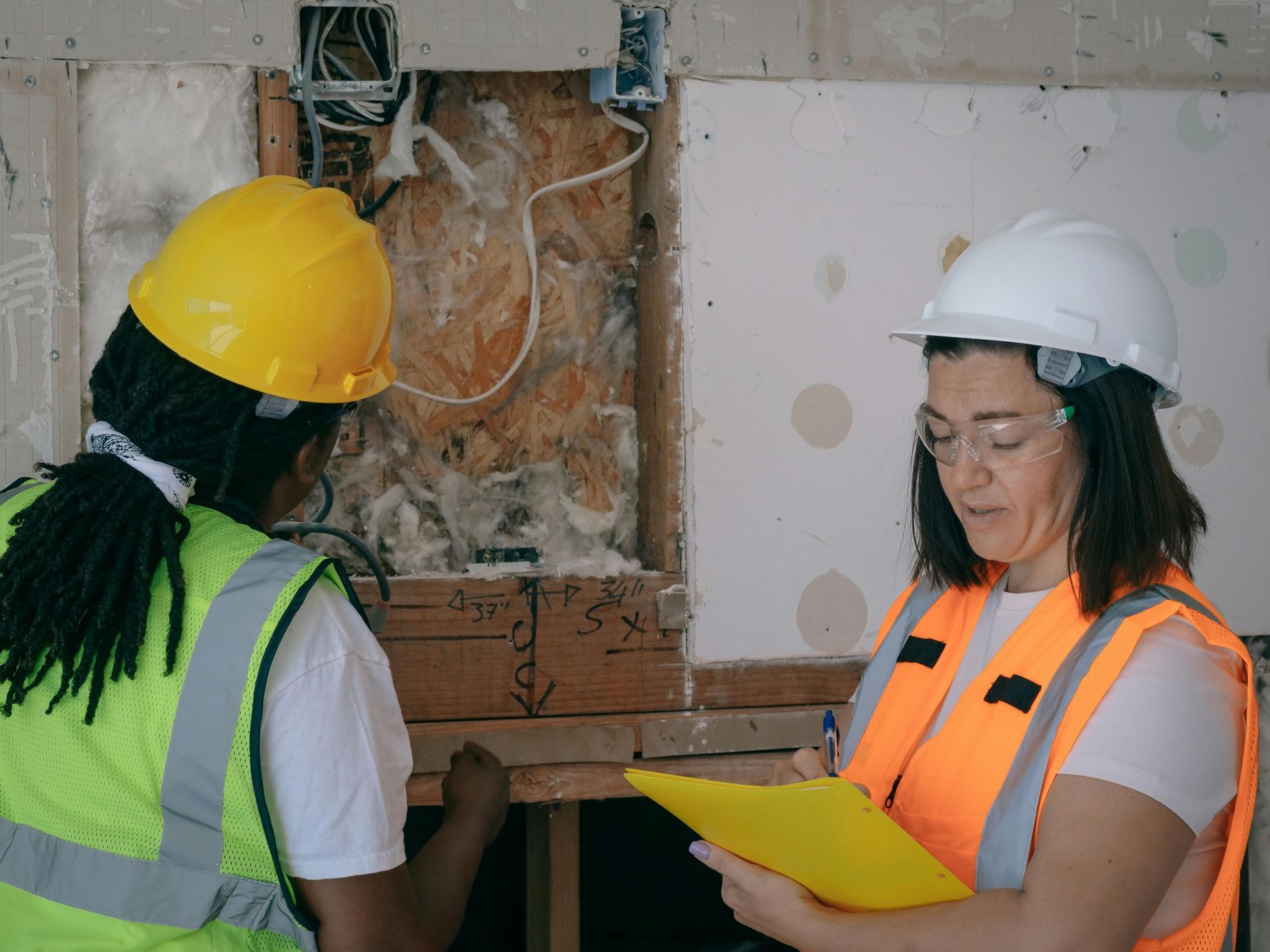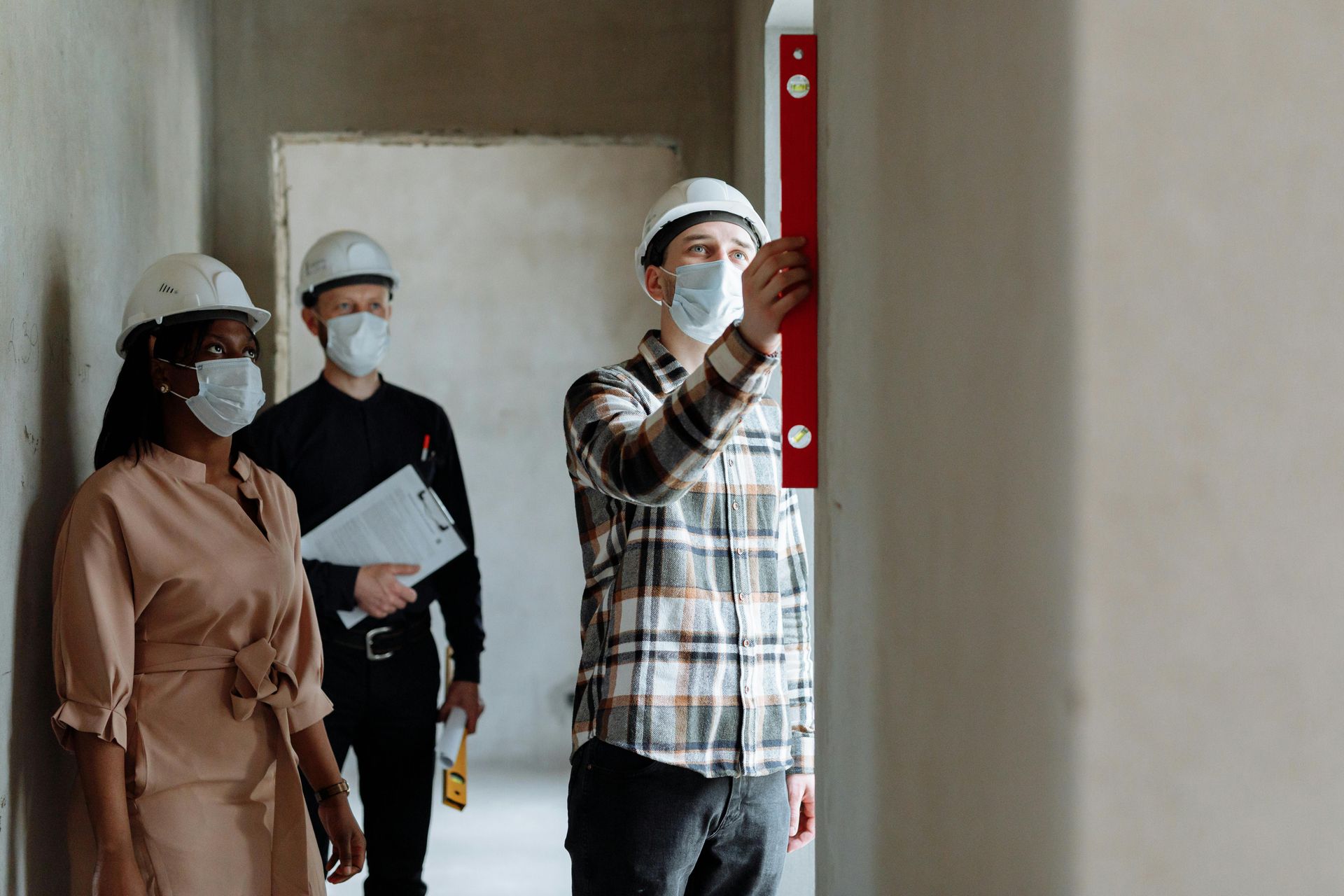4-Point Home Insurance Inspections in Chicago: What They Cover and Why They Matter
When you're buying an older home or renewing your homeowner's insurance policy in Chicago, your insurance company may require a 4-point inspection. This specialized inspection focuses on four critical systems in your home that are most likely to cause insurance claims. Understanding what this inspection involves and why it's required can help Chicago homeowners prepare for the process and make informed decisions about their insurance coverage.
A 4-point inspection for insurance differs significantly from a standard home inspection. While comprehensive home inspections examine every aspect of a property, a 4-point inspection concentrates on electrical, plumbing, HVAC, and roofing systems. This targeted approach helps insurance companies assess risk and determine coverage availability.
Key Takeaways
- 4-point inspections examine electrical, plumbing, HVAC, and roofing systems to assess insurance risk
- Insurance companies typically require these inspections for homes over 30 years old or when policy issues arise
- Chicago home inspections must be performed by licensed professionals familiar with local building codes
- 4-point inspection costs in Chicago typically range from $200 to $500, depending on property size and complexity
- Results directly impact insurance coverage availability, premium rates, and policy terms
- Professional building inspectors in Chicago can identify potential issues before they become insurance obstacles
What is a 4-Point Inspection?
A 4-point inspection is a focused evaluation that examines the four major systems most likely to cause property damage and insurance claims. Unlike comprehensive home inspections that can take several hours, these inspections typically take 60 to 90 minutes and concentrate on specific areas of concern for insurance underwriters.
Insurance companies developed this inspection type to streamline their risk assessment process while focusing on components that historically generate the most claims. The inspection must be conducted by a qualified professional familiar with local building codes, weather-related wear patterns, and the unique challenges that older Chicago homes may face.
The Four Critical Systems Examined
Electrical System Assessment
The electrical system evaluation focuses on the main electrical panel, visible wiring, and overall electrical safety. Chicago homes built before 1980 often have outdated electrical systems that may not meet current safety standards. The inspector examines the electrical panel for proper labeling, appropriate breaker types, and signs of overheating or damage. They will also verify that the electrical service capacity is adequate for the home's current electrical demands.
Common electrical issues affecting insurance coverage include knob-and-tube wiring, aluminum wiring, Federal Pacific panels, and Zinsco panels. These components are considered high-risk due to their association with electrical fires. The inspector also checks for proper grounding, GFCI protection in bathrooms and kitchens, and any visible wiring showing signs of wear or improper installation. Outdated electrical systems may require significant upgrades to meet insurance requirements.
Plumbing System Evaluation
The plumbing inspection examines visible supply and drain lines, water heater condition, and overall system integrity. Chicago's harsh winters and aging infrastructure create unique plumbing challenges, including frozen pipes and corrosion from temperature fluctuations. The inspector looks for pipe materials, connections, and signs of leaks or water damage that could indicate system failures.
Polybutylene pipes, commonly used between 1978 and 1995, are a significant concern for insurance companies due to their tendency to fail unexpectedly and cause extensive water damage. The inspector also evaluates the water heater's age, condition, proper installation, and temperature relief valve operation. Gas water heaters require proper venting to prevent carbon monoxide hazards, while older units may lack modern safety features that insurance companies now require.
HVAC System Inspection
The HVAC system inspection covers the furnace or boiler, ductwork, and air conditioning units. Chicago's extreme temperature variations place significant demands on HVAC systems, making proper maintenance and functionality crucial for both comfort and insurance coverage. The inspector examines the age and condition of heating equipment, proper venting, and safety controls, paying particular attention to heat exchangers in furnaces as cracked units pose serious safety risks, including carbon monoxide poisoning.
The inspector also checks for proper installation of carbon monoxide detectors, adequate clearances around equipment, and signs of poor maintenance that could indicate future problems. Ductwork is examined for proper installation, adequate support, and signs of damage or disconnection. Air conditioning units receive attention for refrigerant leaks, proper electrical connections, and overall condition that could affect performance or safety.
Roofing System Analysis
The roofing inspection examines the roof covering, gutters, downspouts, and visible structural elements. Chicago's weather patterns, including heavy snow loads, ice dams, and severe storms, create significant stress on roofing systems throughout the year. The inspector evaluates the roof's age, material condition, missing or damaged shingles, proper flashing around chimneys and vents, and signs of water intrusion that could lead to expensive interior damage.
Flat roofs, common on Chicago's multi-story buildings, receive special attention for ponding water, membrane condition, and drainage adequacy. The assessment includes checking gutters and downspouts for proper attachment, adequate capacity, and appropriate drainage away from the foundation. Ice dam formation areas are examined for proper insulation and ventilation that could prevent winter damage.
Why Insurance Companies Require 4-Point Inspections
Insurance companies require 4-point inspections as a risk management tool to assess the likelihood of future claims. These four systems account for a significant percentage of homeowner's insurance claims, particularly in older homes where system failures are more common. The requirement typically applies to homes over 30 years old, though some companies may require them for newer homes with previous claims, recent transfers between insurance companies, or when applying for increased coverage limits.
From the insurance company's perspective, the inspection helps identify potential problems before they become expensive claims, ensures basic safety standards are met, and provides documentation of the home's condition when coverage begins. This information becomes crucial if disputes arise about whether damage was pre-existing or occurred during the policy period. The inspection also helps insurers determine appropriate premium rates based on the actual risk level of the specific property rather than relying solely on general demographic data.
4-Point Inspection Cost and Process in Chicago
The 4-point inspection cost in Chicago varies based on home size, system accessibility, and the inspector chosen. Most Chicago homeowners can expect to pay between $200 and $500 for a professional inspection, with larger homes or properties with complex systems typically falling on the higher end of this range. The process begins with scheduling an appointment with a qualified building inspector in Chicago who is licensed to perform insurance inspections and familiar with local insurance company requirements.
During the inspection, the professional inspector examines each system methodically, takes photographs for documentation, and notes any deficiencies or areas of concern. The homeowner or their representative should be present to provide access to all areas and answer questions about the property's history and any recent upgrades or repairs. The entire process typically takes one to two hours, depending on the home's size and complexity. After completing the evaluation, the inspector prepares a detailed report with findings, photographs, and recommendations that meet insurance company formatting requirements.
Common 4-Point Inspection Issues and Solutions
| System | Common Issues | Typical Solutions |
|---|---|---|
| Electrical | Outdated panels, aluminum wiring, knob-and-tube systems | Panel upgrades, rewiring, GFCI installation |
| Plumbing | Polybutylene pipes, old water heaters, galvanized supply lines | Pipe replacement, water heater upgrades, repiping projects |
| HVAC | Cracked heat exchangers, improper venting, old equipment | System replacement, duct repairs, proper venting installation |
| Roofing | Missing shingles, damaged flashing, poor drainage | Roof repairs, flashing replacement, gutter improvements |
Choosing a Qualified Building Inspector in Chicago
Selecting the right building inspector for your 4-point inspection is crucial for obtaining accurate results that insurance companies will accept. Chicago homeowners should look for inspectors who are licensed, experienced with insurance inspections, and familiar with local property challenges. The inspector should carry professional liability insurance and provide references from recent clients.
Professional inspection services are available throughout the Chicago metropolitan area, serving both urban and suburban communities. Many companies serve the entire Chicagoland region, including Rogers Park, Edgewater, Uptown, Lincoln Square, North Center, Lakeview, and surrounding areas, ensuring homeowners have access to qualified professionals who understand local building practices and regional insurance requirements.
How 4-Point Inspection Results Impact Your Insurance
The results of your 4-point inspection significantly influence your insurance coverage options, premium rates, and policy terms. Insurance companies use the inspection report to assess risk and determine coverage availability, often making decisions within days of receiving the completed report. A favorable inspection can lead to competitive rates and comprehensive coverage options, while unfavorable results may create challenges in obtaining affordable insurance.
If the inspection reveals deficiencies or outdated systems, the insurance company may require repairs before providing coverage, exclude certain coverages, or decline insurance altogether. In some cases, they may offer coverage with higher deductibles, reduced coverage limits for affected systems, or premium surcharges to offset the increased risk. Understanding these potential outcomes helps homeowners make informed decisions about addressing issues before applying for insurance or shopping for companies with different underwriting standards.
Some insurers specialize in older homes and may be more willing to work with properties that have aging systems, though they may still require regular inspections or maintenance agreements. The key is matching your property's condition with an insurance company whose underwriting guidelines align with your home's characteristics and your budget for both premiums and potential system improvements.
Frequently Asked Questions
How long does a 4-point inspection take?
A typical 4-point inspection takes between 60 to 90 minutes, depending on the size of your home and accessibility of the systems. The inspector needs time to thoroughly examine each of the four critical systems and document their findings with photographs.
Can I perform a 4-point inspection myself?
Insurance companies require 4-point inspections to be performed by licensed professionals with appropriate credentials and experience. Self-conducted inspections are not acceptable for insurance purposes because they lack the objectivity and expertise that insurance companies require.
How often do I need a 4-point inspection?
The frequency depends on your insurance company's requirements and your home's age and condition. Most insurance companies accept 4-point inspection reports that are less than one year old, though some may require more recent inspections.
What happens if my home fails the 4-point inspection?
There's no pass or fail for 4-point inspections, but significant deficiencies may lead to coverage restrictions or requirements for repairs. You can address the issues identified and have a reinspection performed, or shop for insurance companies with different underwriting standards.
Will a 4-point inspection affect my premium rates?
Yes, the inspection results directly influence your insurance rates and coverage options. Homes with well-maintained, updated systems typically receive better rates, while properties with aging or deficient systems may face higher premiums or coverage limitations.
Final Thoughts
A 4-point inspection serves as a valuable tool for both homeowners and insurance companies, providing an objective assessment of the systems most likely to cause property damage and insurance claims. For Chicago homeowners, understanding what these inspections involve and preparing accordingly can help ensure a smooth insurance process and potentially save money on premiums.
Working with qualified professionals who understand both the technical aspects of home systems and the specific requirements of insurance underwriting is essential for obtaining accurate, acceptable inspection results. By taking a proactive approach to home maintenance and addressing system deficiencies before they become insurance obstacles, homeowners can maintain better coverage options and potentially reduce their insurance costs over time.
Need a professional 4-point inspection for your Chicago home insurance? Contact our licensed building inspector today for fast, comprehensive evaluations that meet all insurance company requirements.
Reference:
https://safeelectricity.org/ground-fault-circuit-interrupters-gfcis/




